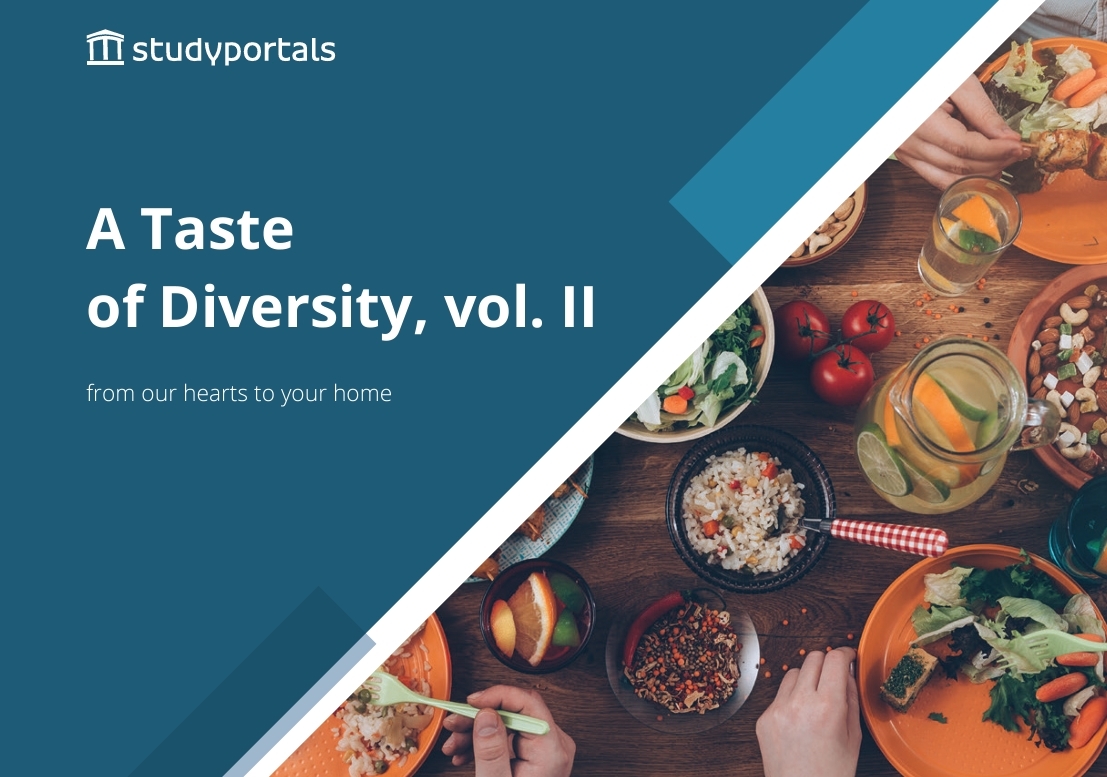The Student of the Future highlights
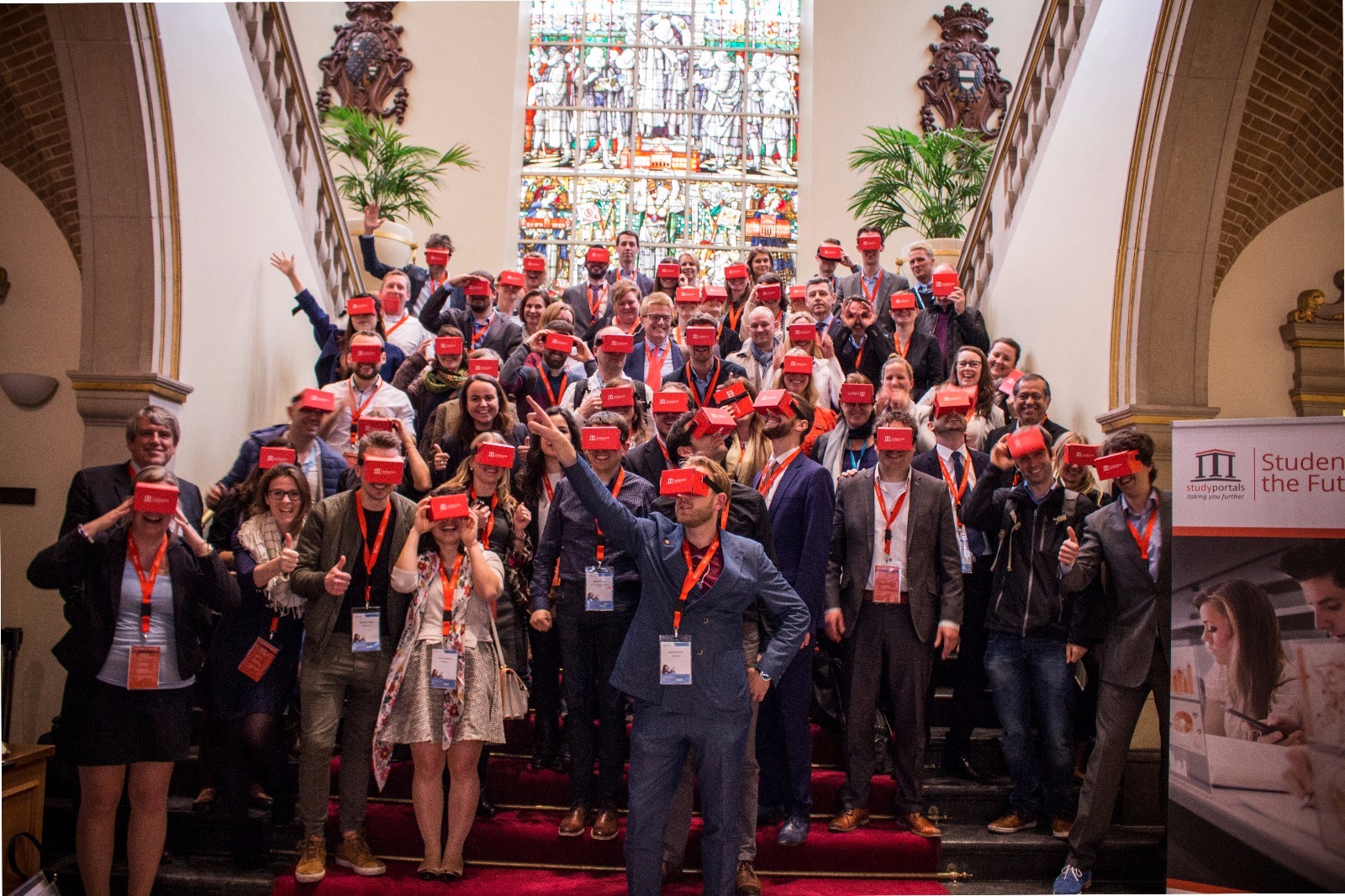
April 5th will be remembered as the day we made history with our first ever conference – The Student of the Future! We asked you to join us through a one day travel through time, visiting both the near and further future of international education. It was exciting, and we are grateful to our partners at Blackboard to have helped us organise such a great day. We are happy to present the Student of the Future conference in numbers:
100+ participants
879 video streams on Facebook, over 16.1 K impressions
2 inspiring keynotes
4 insightful sessions
2 useful workshops
100+ Google cardboard glasses folded
we made the press: University World News, The Pie News, EUPRIO blog
So what did we learn?
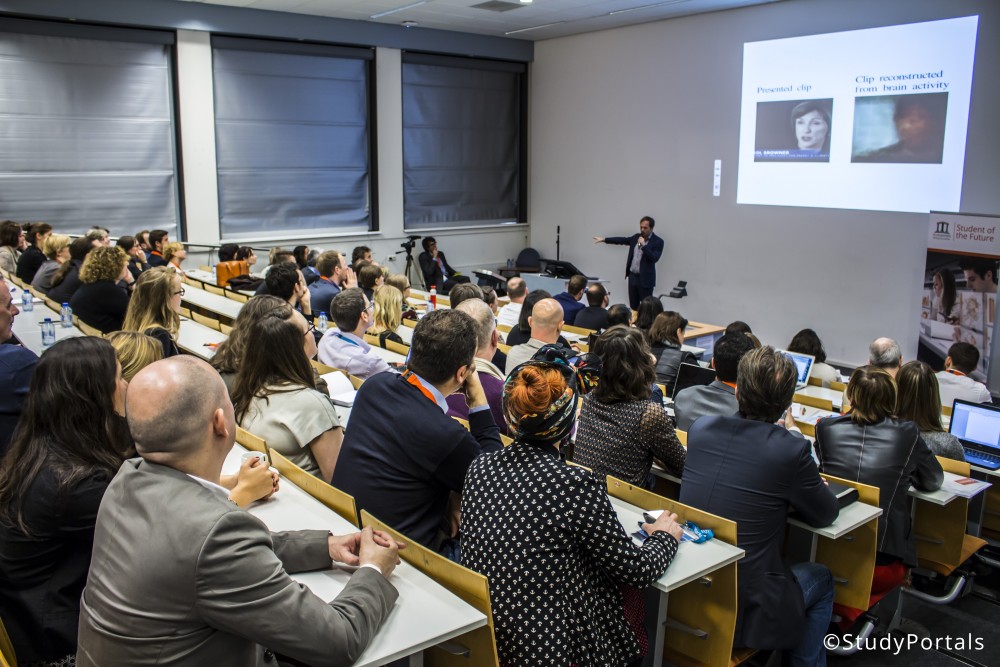
Yuri van Geest, futurist, a strong believer in exponential organisations and founder of the Singularity University in the Netherlands talked about the future of technology. Using the metaphor of a tsunami to showcase the extent of the near future technological change, Yuri van Geest called on educators to act before the rising tide of technological advancements. In his own words, “People and ideas are interacting like never before” shifting the world towards less ownership, but increased abundance and access to information, flipping the whole system inside out.
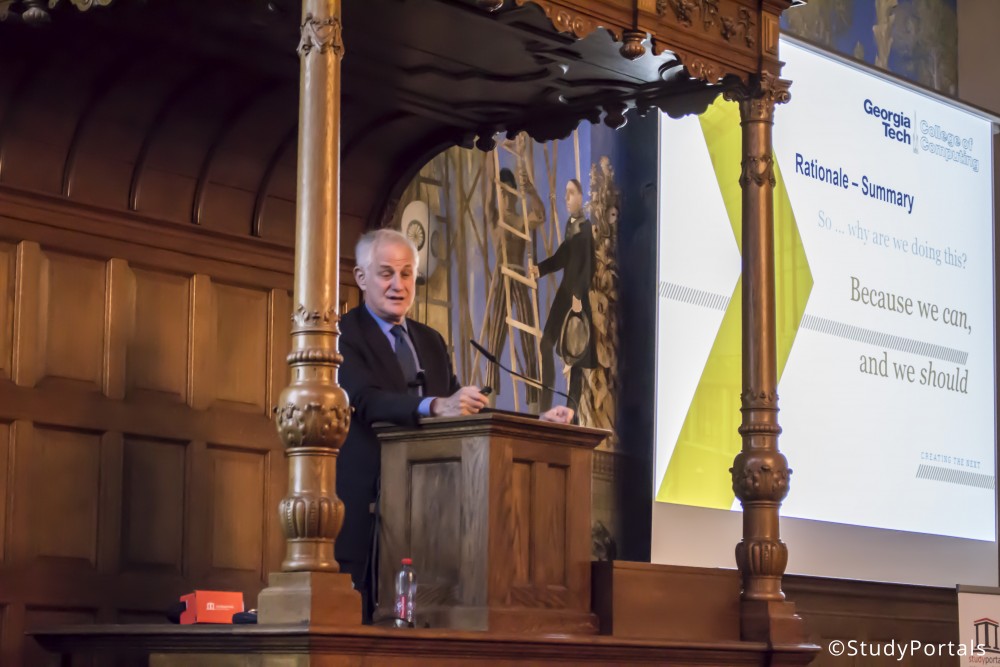
Dean Zvi Galil showed us the new face of online education, where students from around the world can receive the same quality education for just a fraction of the price. We learned that it is possible for a university to team up with big players such as AT&T and Udacity to create MOOC-like masters degrees in computer science, and create higher access to education with an admission rate of 55%. The Georgia Tech online masters degree has caused an earthquake in US education, enrolling over 3,358 students, 20 of which have already proudly received their diplomas although the programme is supposed to take students 2.5-3 years instead of the 1.5 years for full-time residential students.
“In rankings, universities get points on high selectivity but the story with them is not accessibility it’s deniability,” he said. “The whole story of admissions into higher education in the United States is a joke…we want to be able to accept everybody who is qualified.” (Dean Zvi Galil for The Pie News)
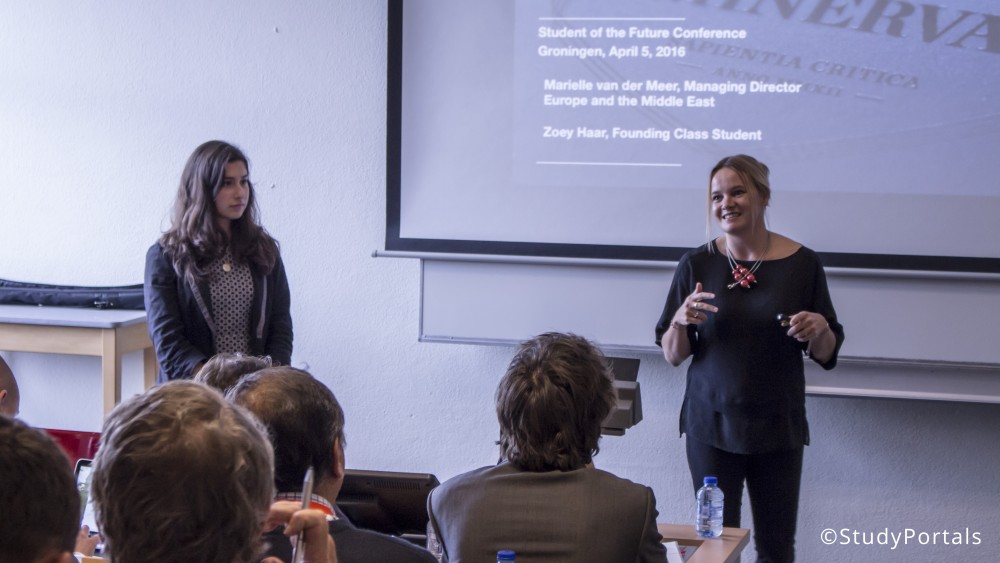
Marielle van der Meer from Minerva Schools at KGI showed us a contrasting model of education, built from scratch to meet the needs of the next generation of students, represented at the conference by Zoey Haar. Students benefit from a new model of learning, where lectures and exams are replaced by seminars and fully active learning. In addition, in order to fully teach their students the skills they need in an ever-changing world, Minerva students spend their first year in San Francisco and then move to study together abroad in Berlin, followed by Buenos Aires, Seoul, Bangalore, Istanbul, and London.
“We believe it is probably easier to design a whole university from scratch and so we’ve reinvented a four-year undergraduate degree programme, designed to teach students the skills they will need in an ever-changing world.”
“We’ve completely redesigned the curriculum with no lectures and no exams. Instead we offer small seminars and fully active learning.” (Marielle van der Meer for University World News)
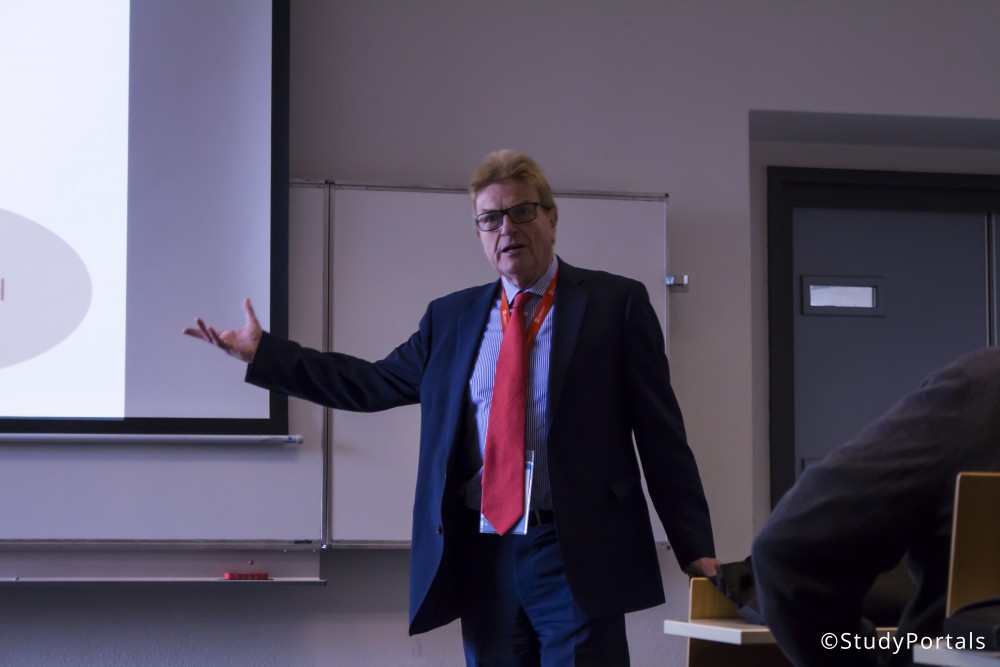
Dr. Neil Kemp opened our eyes about the need to better understand globalisation in the context of international education. He pointed at the consequences of the constant growth of international student mobility, which UNESCO estimates at 8 million students by 2030. The most interesting knowledge came from the discussion regarding the main source countries for international students in the coming years, such as Malaysia, Vietnam, Nigeria, or Russia. What does the next generation of students expect from their education? Neil Kemp pointed towards higher levels of cooperation, advanced technological integration, strong focus on values and discovery, and learning by doing. The demands of the new generations also place higher pressure on the educator of tomorrow to differentiate themselves, and show relevance, give reasons to believe in the education, excite, enthuse and delight the students, and become an integral part of their lives.
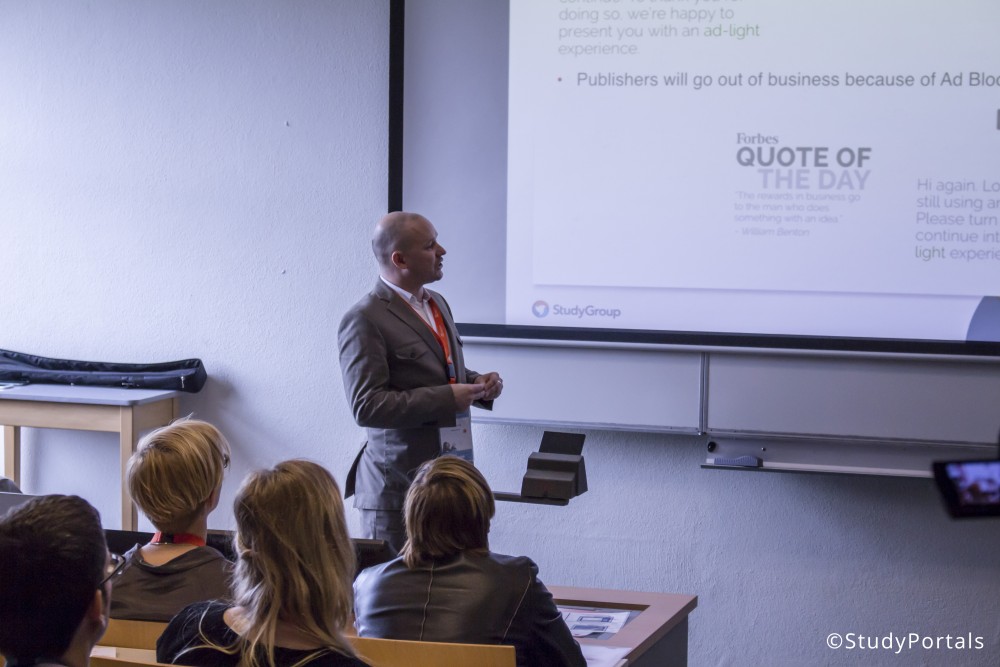
The same ideas resonated within Tony Lee‘s insights into digital marketing for the new generation of students, where content is king, personalization is a must and push marketing is on its way out of the university marketing mix. The most important lesson was; the need for more authentic stories that universities can leverage from their own campuses and more targeted means of reaching the right students for each university and each study programme.
“Too many universities still think marketing is all about them and don’t realise that ‘push’ marketing doesn’t work anymore. Universities take a course that is very niche and market it to the entire world. Too much effort is directed to awareness raising because we don’t have the data to target.” (Tony Lee for EUPRIO)
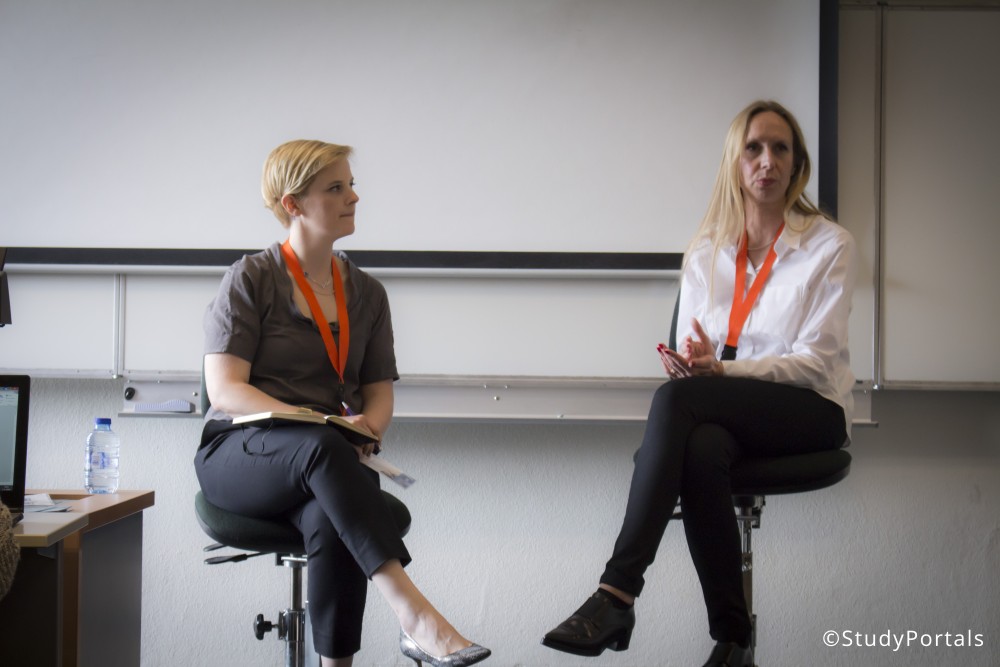
Sara Custer and Nannette Ripmeester took on the challenge of addressing university career services as a means of attracting new students and delivering higher value. Students always want to know if they can get a job after studying in a specific country, according to Neil Kemp, which also means universities need to play a larger role in helping students transition from a degree to successful careers.
“The students of tomorrow will want to be able to work flexibly, often working from home. Employability doesn’t mean delivering what the labour market wants. It means developing transferable skills, which are up to date.” (Nannette Ripmeester for University World News)
Overall, the future of education is still uncertain, but things are surely moving faster than before, and we are happy and excited to be partnering up with great universities at such an exciting time, to help prepare universities for recruiting the best students around the world.
For more updates, follow us!

